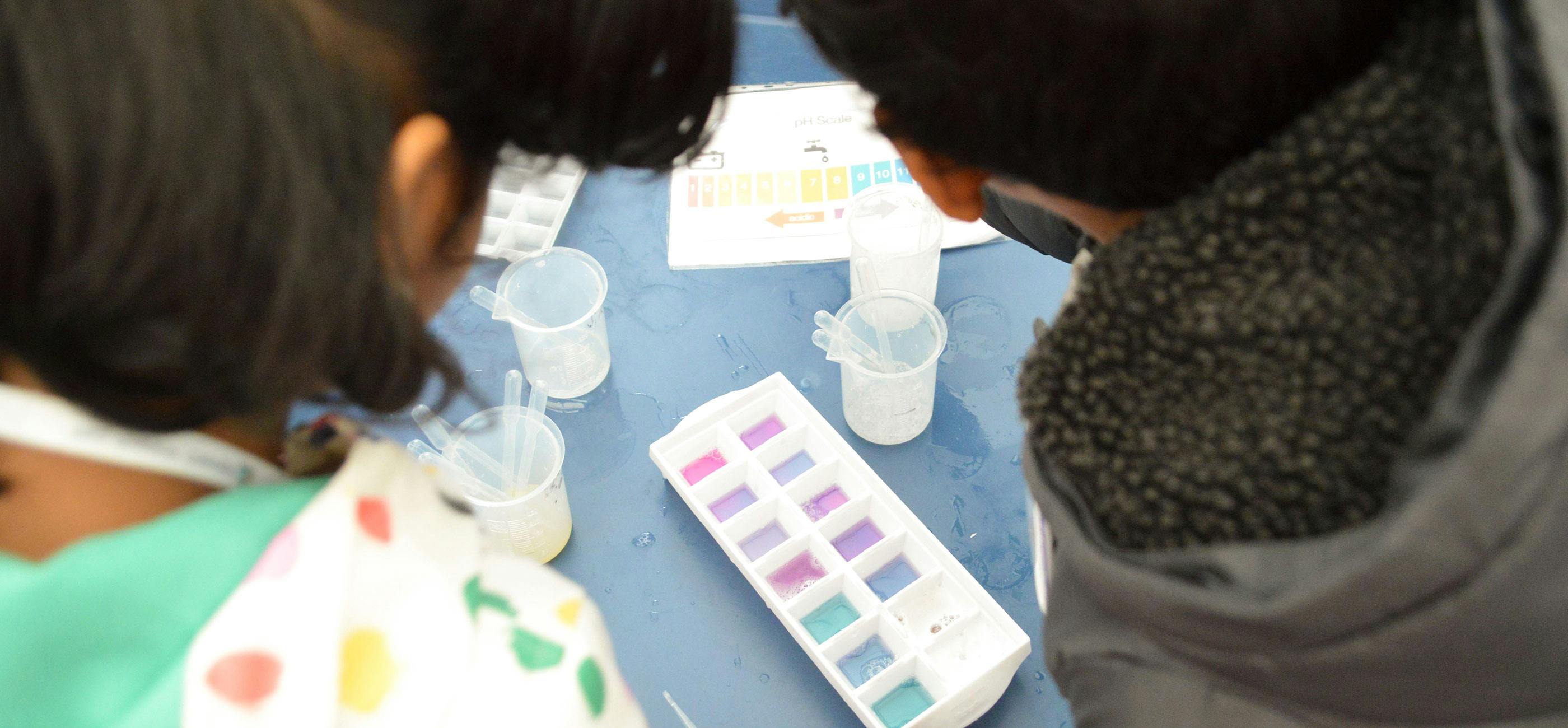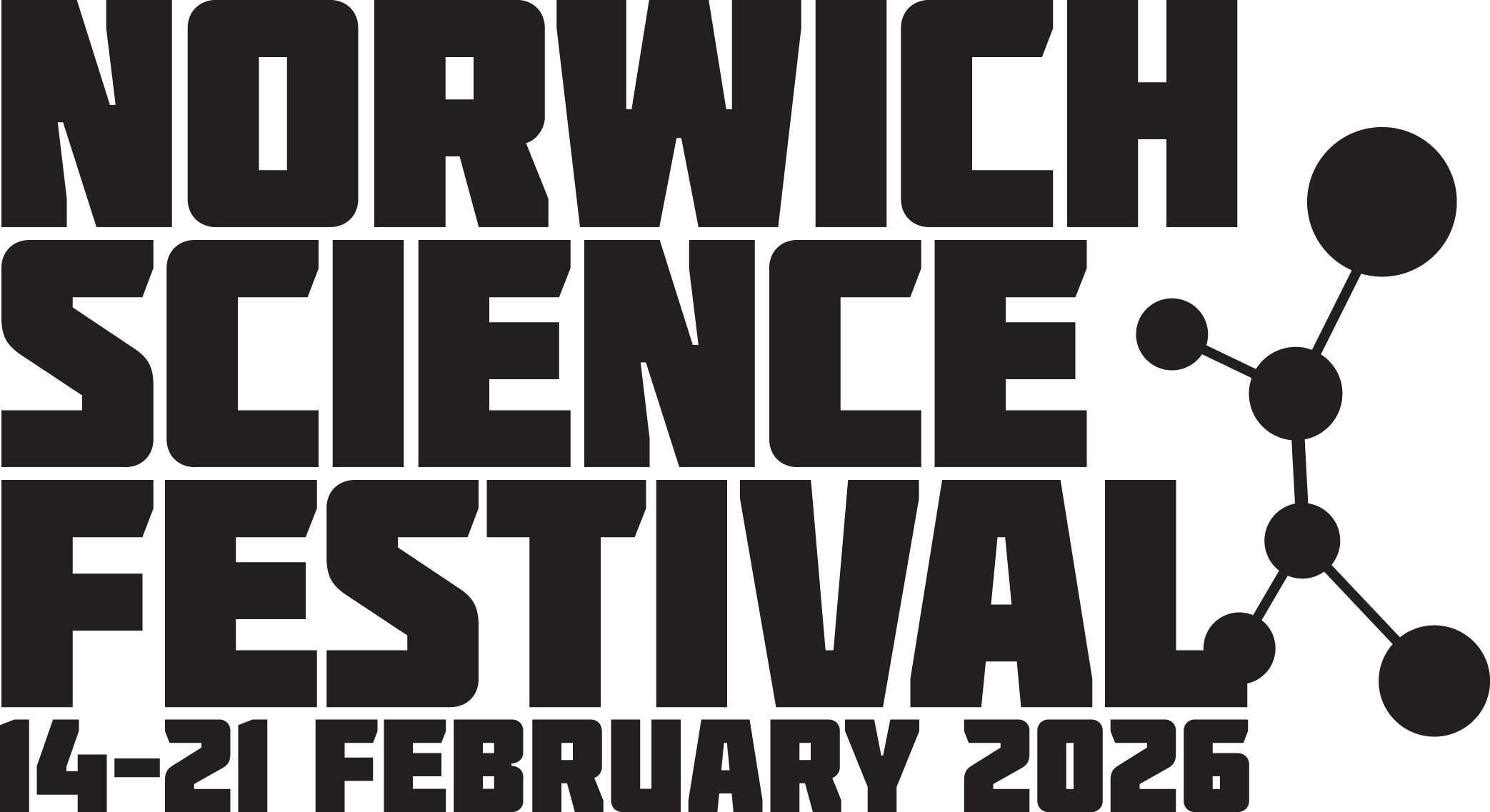- Home
- STEMM activities & learning at home
STEMM activities & learning at home

We’ve rounded up some of the best science home schooling activities from our partners, patrons and contributors. The online activities cover a wide range of STEMM at home activities and learning.
Please note that inclusion does not indicate endorsement by either Norwich Science Festival or The Forum.
From our partners, patrons and contributors:
NSF patron Prof Ben Garrod has a wealth of books and programmes available, including Secrets of Skin, Baby Chimp Rescue, Which Animal Has The Strongest Bite? (with Lizzie Daly), and for older children BBC Earth tiger dissection, and The Power of One on the parallels between the animal kingdom and human behaviour
Discover the cosmos with NSF patron Mark Thompson and his science activity books - including Science for Exploring Outer Space and A Space Traveller's Guide to the Solar System!
Science-writer, author and Guardian zoology correspondent Jules Howard has made his PalaeoLab educational app free during the COVID-19 UK outbreak period. There’s lots of information on dinosaurs and fossil science and it fits alongside the KS2 and KS3 science curriculum. You can download it for free here http://juleshoward.co.uk
Watch the Royal Society of Chemistry‘s series Chemistry In Your Cupboard, including building a rocket and making ice cream, on their YouTube channel
Skype A Scientist – over 800 scientists have signed up for Skype A Scientist since the COVID-19 pandemic began. Skype a Scientist matches up your family with a scientist from your chosen field for a Q&A
Follow Mad Science Norfolk on Instagram for regular activities and inspirational science
Glasgow Science Centre released daily science activity videos on Twitter, as well as a weekly magazine, mainly for 5–11 year olds
Each Friday, Kids Invent Stuff will email out 5 things to do at home – sign up to their mailing list http://eepurl.com/ggrcwf
Kate On Conservation has a KS2 Amazon adventure lesson plan, where children prepare for their trek and learn about jungle habitat, geography and climate
Watch the best of Let’s Go Live with Maddie Moate and Greg Foot – a run of 50 YouTube shows with science and nature-based games, makes, cameras and fun for all the family (KS1/2, 4-11)
Catch up with Steve Backshall’s weekly YouTube wild world Q&A home school class
Talita (formerly of ZSL London Zoo) has shared some amazing animal colouring-in sheets via Dropbox
The Woodland Trust’s ideas for nature activities at home or in the garden
Other online resources:
BBC Bitesize – for primary, secondary and post 16+
STEM Learning – a large range of primary, secondary and A-level resources
Raspberry Pi coding
Scratch coding
Tynker coding
Futurum – secondary and college level STEMM activity sheets
Twinkl – primary and secondary resources. Twinkl are now offering free access to help prepare and continue education. Enter UKTWINKLHELPS on http://twinkl.co.uk/l/llrv3 to begin your free access.
BrainPop – US based but has a wealth of subjects
Coding Games for Beginners – a round-up of great games that will also teach you coding
Robotics and Engineering Projects – equipment, resources, projects and tutorials for robotics
Fun Emoji Coding & Tech Games - a list of emoji games and coding, compiled by Wizard Pins
YouTube Channels:
Maddie Moate – the host of the BAFTA nominated CBeebies TV series Maddie’s Do You Know?, Maddie explores animals, plants, travel and technology. Also all on Maddie’s own website
SciShow Kids – explores all those curious topics that make us ask “why?”
National Geographic Kids – Nat Geo Kids makes it fun to explore your world with weird, wild, and wacky videos
Science Max – a series that turbocharges all the science experiments you’ve done at home
Geek Gurl Diaries – for all those who love Raspberry Pi, Arduino, Python, programming, computer science, logic and electronics
Sci Show – the presenters delve into the scientific subjects that defy our expectations and make us even more curious
Mike Likes Science – science inspired music videos
Resources to order:
Learning Resources – hands-on educational games, toys and learning resources
Whizz Pop Bang – award-winning science magazine that brings science to life for children aged 6–12
Paper engineering projects from www.robives.com

